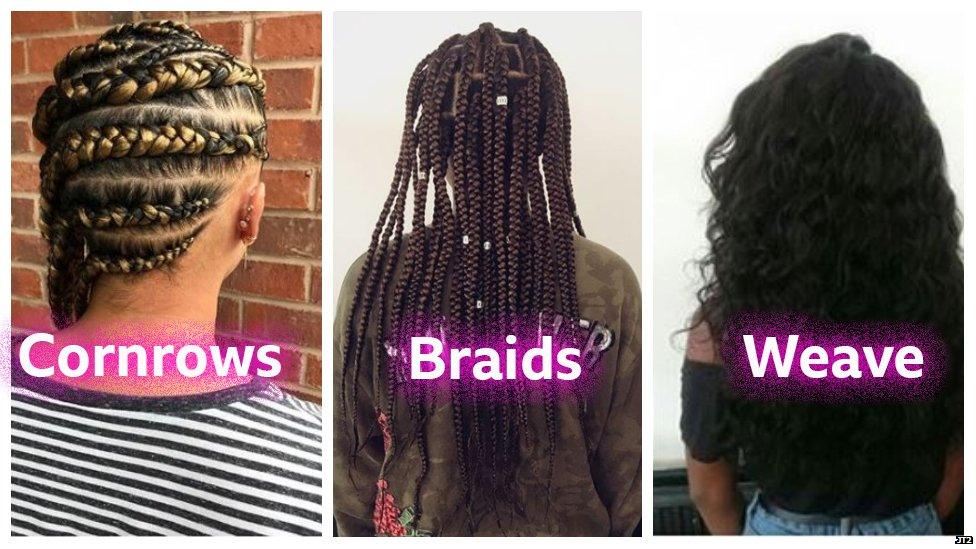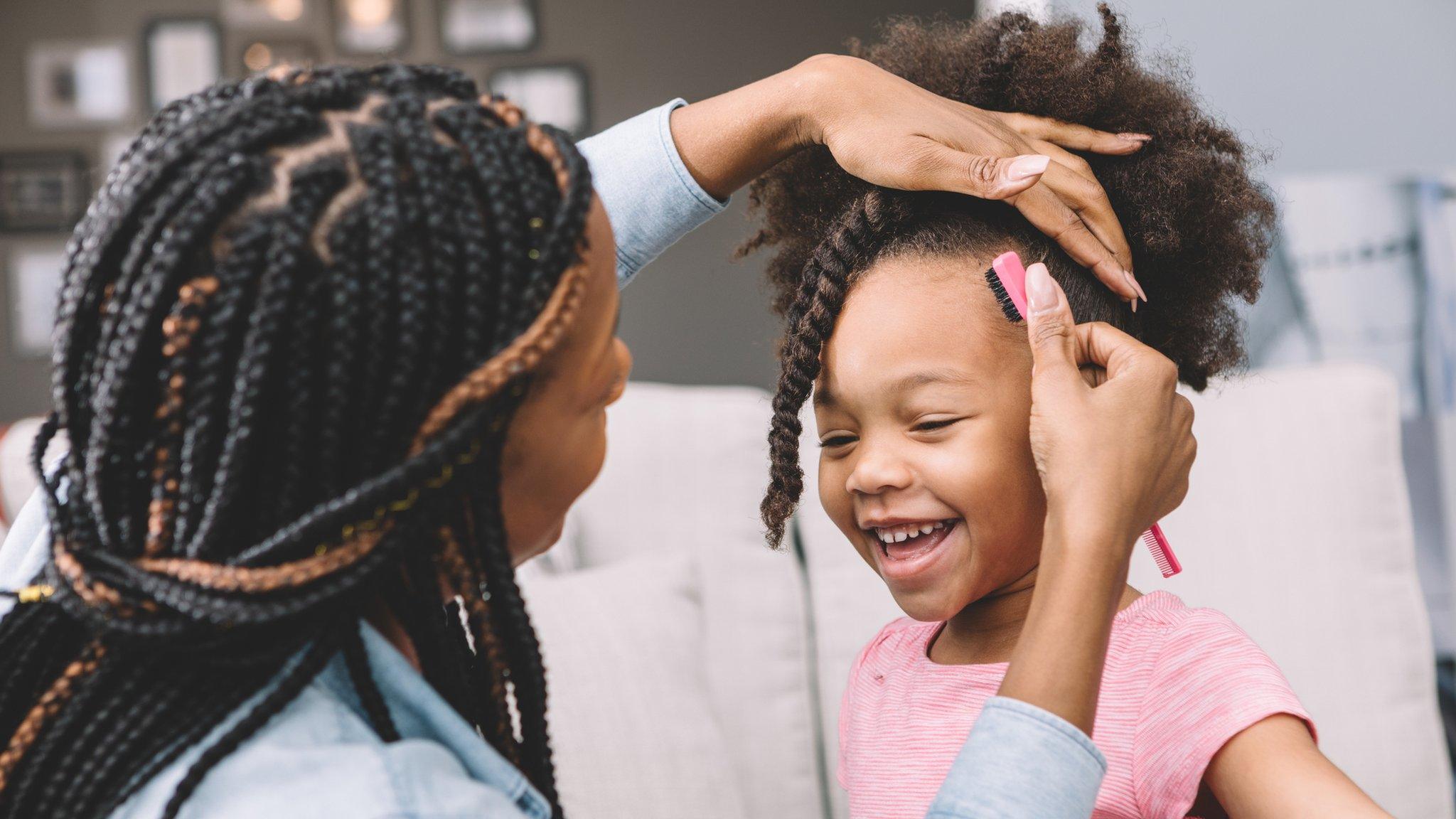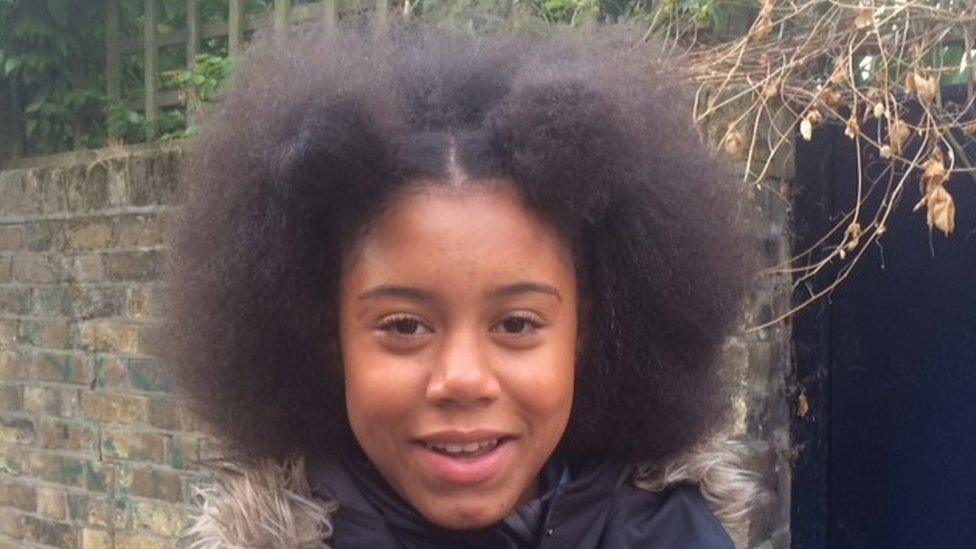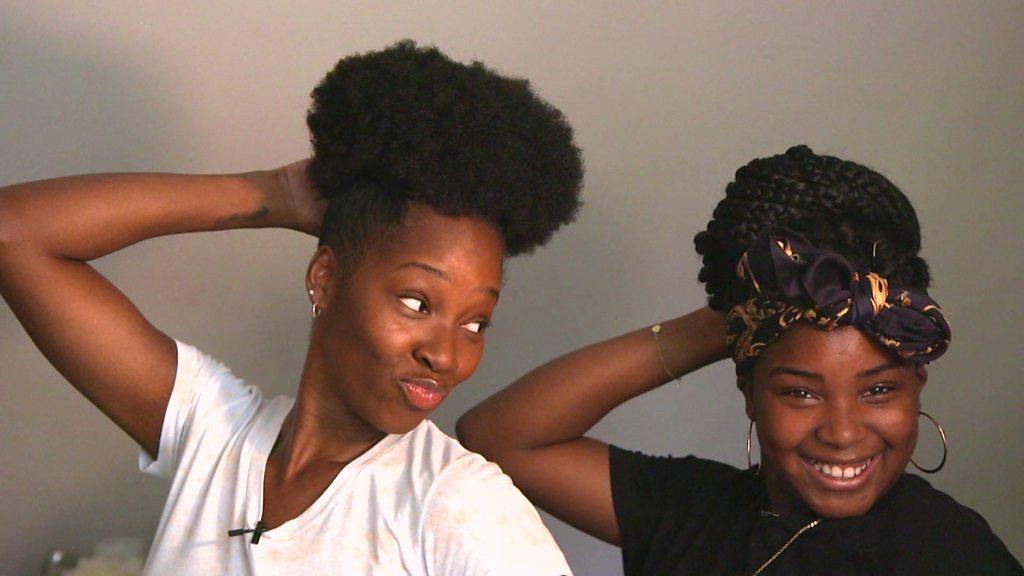Afro hair: New discrimination guidance for schools published
- Published
- comments
Kids speak about their afro textured curly hair 'My hair is unique, I feel really lucky'
Pupils who wear their hair in natural Afro styles will be protected by law against discrimination, under new guidelines.
The 2022 guidelines from the Equality and Human Rights Commission (EHRC) - whose job it is to make sure all people are treated equally in the UK - will be shared with schools to help make sure their rules about hair or hairstyles are not discriminatory.
Discrimination is when a person is treated differently, usually badly, because of the colour of their skin, their gender, their age, or if they have a disability.
Campaigners have long been calling for schools and workplaces to address hair-based discrimination, which covers a range, from describing someone's hair as exotic to banning particular hairstyles.
'Every child deserves to be celebrated for who they are '

The EHRC has real-life examples and videos to help raise awareness among school leaders about indirect race discrimination.
"We want to put a stop to pupils being unfairly singled out for their appearance in schools." said Jackie Killeen, the Chief Regulator at the EHRC.
"Every child deserves to be celebrated for who they are and to thrive in school without having to worry about changing their appearance."

Some of the different types of styles for textured hair
Race is a protected characteristic under the 2010 Equality Act, which means a person must not be discriminated against because of their hair or hairstyle if it is associated with their race or ethnicity.
This includes natural Afro hairstyles, braids, cornrows, plaits and head coverings.
Under the new guidelines, school uniform and appearance rules that ban certain hairstyles, without considering a person's race, will likely be against the law.
World Afro Day: A day to celebrate coiled or curly hair
The new guidelines for schools have been made with help from World Afro Day and the All-Party Parliamentary Group for Race Equality in Education.
"No child should be sent home from school for wearing their natural hair" said L'myah Sherae.
L'myah is the founder and chief coordinator of the All-Party Parliamentary Group for Race Equality in Education - a group that works with politicians to try to make sure children from ethnic minority backgrounds are treated fairly.

"We want Black children across the UK to know that they can be genuinely proud of their identity, not penalised for it.
"I am therefore pleased that this guidance is now being published, and I am proud to have been involved in the drafting process," she said.
Michelle De Leon, founder and CEO of World Afro Day said: "We hope that these resources will be an effective tool to clarify equality law for teachers and help shift the bias against Afro hair that has become ingrained in some parts of the education system."
- Published15 September 2023

- Published11 February 2020

- Published14 September 2018

